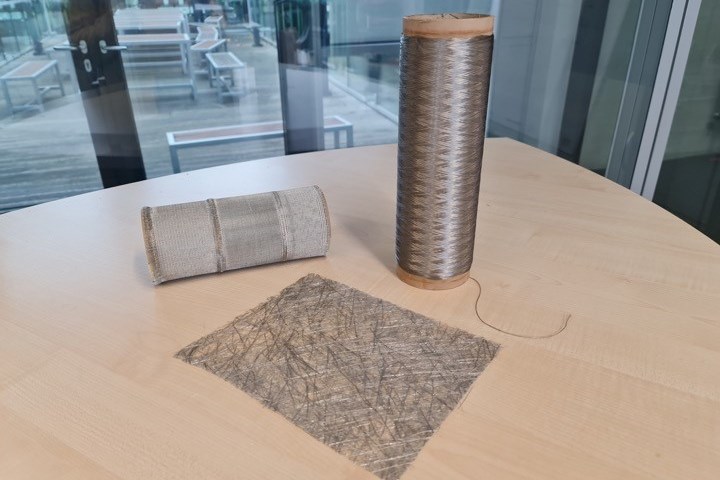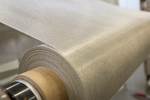AMAC, FibreCoat partner, launch aluminum-coated, multifilament composite yarn
Alucoat are metal-coated, glass or basalt fibers suitable as electromagnetic shielding material in automotive applications such as radar or antennae.

Photo Credit: AMAC GmbH
On Nov. 1 AMAC GmbH (Advanced Materials Advisory and Consultancy, Aachen, Germany) announced its cooperation with FibreCoat GmbH (Aachen, Germany) for the market introduction of FibreCoat’s products and global business development, including the launch of its aluminum-coated, multifilament yarn. FibreCoat is an international award-winning, start-up and spin-off company of the RWTH Aachen University in Germany and develops multifilament coated yarns, fabrics and composites based on glass or basalt fibers.
More specifically, FibreCoat develops metal-coated fibers like bi-component multifilament yarns with a basalt core and aluminum coating, which can be used for EMI-shielding and heat sinks in battery casings, electric diverters in filters, reinforcement of cast aluminum parts and conductive yarns in smart textiles.
FibreCoat’s recent launch, Alucoat, is an aluminum-coated glass or basalt fiber which is suitable as electromagnetic shielding material in automotive applications such as radar, antennas or for autonomous driving, as well as for mobile phones and applications in buildings. Due to its high thermal conductivity and heat transfer capabilities, FibreCoat says it can be used for the manufacture of automotive battery trays or industrial applications such as fine particulate air filters.
Alucoat will be available as of Jan. 1, 2021 as a yarn, fabric or non-woven with a wide range of possible titers and areal weight. The material will offer an electrical conductivity of 100 Ohm-meters (Ωm) and a working temperature of at least 400°C. Furthermore, it can be used for the shielding of low to high frequencies with an effectiveness of 80-120 decibals.
“Alucoat is the first product on the market where each single filament is coated uniformly during the spinning process,” says Dr. Robert Brüll, CEO FibreCoat GmbH. “Therefore, the product has superior properties, it outperforms in shielding and thermal conductivity and has a significantly lower price than any today’s incumbent products. Furthermore, we are working on a product consisting of multi-filament glass fiber coated with polypropylene polymer to be launched at JEC 2021 which will be destined mainly for automotive and industrial applications.”
Related Content
-
Owens Corning initiates review of strategic alternatives for glass fiber business
Owens Corning considers alternative options like a potential sale or spin-off as part of its transformative move to strengthen its position in building and construction materials.
-
Robotized system makes overmolding mobile, flexible
Anybrid’s ROBIN demonstrates inline/offline functionalization of profiles, 3D-printed panels and bio-based materials for more efficient, sustainable composite parts.
-
Running shoe insoles get a lift with thermoplastic fiberglass tapes
FlexSpring insoles take advantage of unidirectional, continuous fiberglass and thermoplastics to enable next-level performance for the everyday runner.















